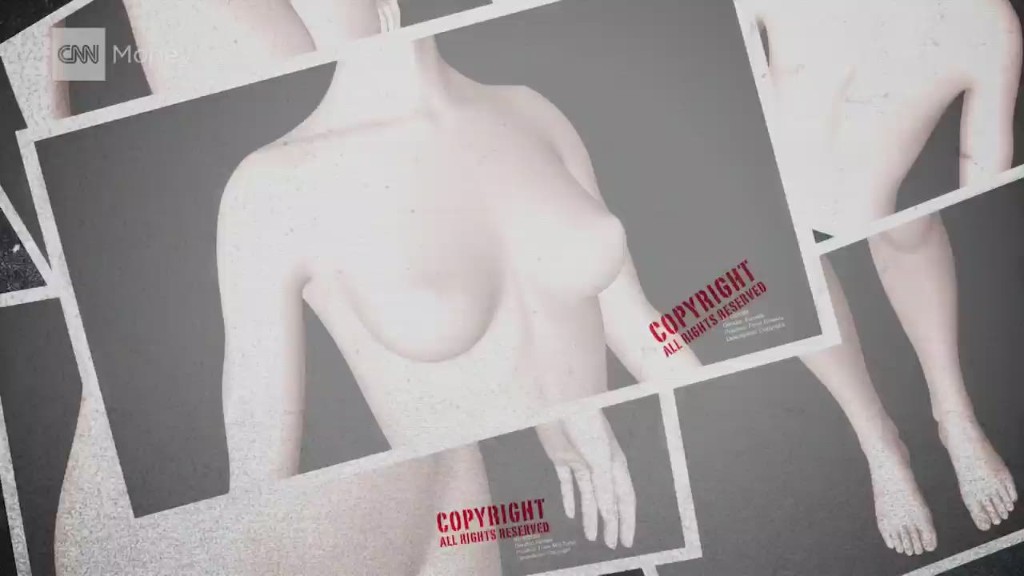
A new app promises to be a prenup for sex tapes.
Rumuki (Japanese for "room key") wants to protect people from "revenge porn" by requiring explicit permission to film, and view, intimate sexual experiences. The app is the creation of 24-year-old software engineer Nathan Kot, who refers to it as a digital rights management tool -- for sex tapes.
The term revenge porn refers to non-consensual pornography that's distributed for purposes that range from public shaming, to making money, to extorting victims for more material. Sometimes the videos or photos are filmed consensually, but they're used by an ex post-breakup to destroy a person's reputation.
Partners looking to film a sex tape download the Rumuki app and are required to exchange "keys" to connect their phones, which requires a QR code scan. One party is given a recording key and can film a video, which is encoded and encrypted as it films. The file is stored locally on a phone.
To view the video (and it's only video for now but photos may come later) partners must be given playback permission -- something either party can revoke at any time -- and that permission key for one-time playback that automatically expires after one week. Partners can choose to delete the recording later if, for example, a breakup occurs.
Related: Sextortion is scarily common, new study finds
"My generation grew up watching porn. A lot of us want to make these videos but don't understand the security implications that go into [that]," Kot told CNNTech.
Revenge porn has been increasingly in the headlines, with victims ranging from everyday people to celebrities. In August, comedian Leslie Jones fell victim to hackers posting nude photos on her web page, prompting federal authorities to look into the hack.
Laws against online harassment, including revenge porn, are notoriously weak. There's a lack of basic understanding of cybercrime from most law enforcement -- and the burden of proof is placed on the victim. For some victims, copyright law has been the only way to get their naked pictures off the Internet -- meaning they need to copyright their naked bodies, literally.
Kot, a self-described digital nomad currently living in Japan, said he doesn't know anyone who has been impacted by revenge porn but he does have several friends who have been nervous about filming themselves for security reasons. He's spent two years creating Rumuki, a side project for which he wrote a whitepaper and consulted with a cryptographer.
Related: The dark side of livestreaming: Periscoping a rape
But Rumuki users shouldn't consider the app a foolproof protection, or a reason not to take precautions, experts say. According to attorney Carrie Goldberg, who specializes in sexual harassment crimes, if somebody wants to take you down, they will -- app or no app.
"An encrypted video-recording app is certainly interesting and shows awareness of the damages [non-consensual pornography] can cause, but this well-meaning app isn't the answer," Goldberg told CNNTech. "Federal and state criminal laws are."
Oftentimes, "revenge porn happens within the context -- or at the end of -- an abusive relationship," she added. "A former partner could coerce their ex into granting them permission to view their Rumuki vid," for example.
Ari Ezra Waldman, an associate professor of law at New York Law School, said the idea of making consent a part of the app is a good start.
"By giving one person veto power over whether a video or image will be viewed, the app's design not only directly affects how people operate on the platform, but also makes it known that nonconsensual behavior will simply not be tolerated," said Waldman, who founded the Tyler Clementi Institute for CyberSafety at New York Law School.
Kot is honest about the fact that no piece of software is completely secure. He compares one potential analog threat to using Google Chrome's incognito mode: while a user's browsing history won't be stored on the computer, nothing can prevent someone from peeking over the user's shoulder to see the screen.
In the case of sex tapes, "you can't prevent someone from [using] a [separate] video camera," for example, Kot said. "If you want to be 100% safe, you should just not take any videos at all."

